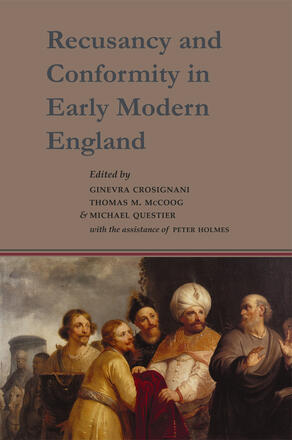
Recusancy and Conformity in Early Modern England
Manuscript and Printed Sources in Translation
Description
Scholarship of the past few decades has succeeded in questioning the wholly objective status typically attributed to the terms of religious affiliation common in early modern England. This is not to say that expressions such as puritan, Arminian, Calvinist are without meaning. But it is equally clear that religious identities have to be reconstructed by interrogating what those terms meant for contemporaries, and by analyzing how their attitudes toward particular styles of liturgy, worship, and conformity to the law that governed the national Church shaped their own awareness of religious identity. This proved especially the case during the reign of Elizabeth I, when what it meant to be a Catholic was complicated by the question of individual compliance with the statute law, the act of uniformity of 1559 and subsequent statutes, notably in 1581 and 1587. One of the best sources for our understanding of the issue is the casuistical literature by Catholic polemicists, who argued with each other about how far conformity to the established Church could be excused, legitimated, and even recommended, in particular as a response to government claims that, at some level, conformity signified no more than obedience to secular temporal authority. This volume seeks to make available in translation to students and scholars in early modern studies the principal texts on conformity and recusancy in the Elizabethan Church.
Reviews
This collection will be an invaluable resource for future scholars and students of post-Reformation Catholicism in the British Isles. It makes accessible in an excellent scholarly edition key documents associated with the contentious question of Catholic conformity in Elizabethan and early Jacobean England and Scotland. Bringing together published and unpublished material that has hitherto been scattered in a variety of libraries and archives, the volume combines careful transcription of material in its original languages with clear English translations. Accompanied by a helpful introduction, Recusancy and Conformity in Early Modern England sheds revealing new light on the struggle to reconcile religious and political loyalty and advances our knowledge of how dilemmas of conscience were negotiated and resolved in post-Reformation Europe. It will surely become a standard point of reference in the field. - Alexandra Walsham, University of Exeter